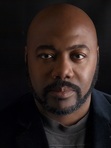Thomas Barr Jr.'s Blog
October 2, 2019
Trump���s concern about ���corruption��� in Ukraine is highly selective and remarkably convenient
Reported by Aaron Blake of the Washington Post
President Trump and the relatively few Republicans who
have defended him regarding his contact with the president of Ukraine have settled on one universal talking point: This is about corruption.
“We’re supporting a country; we want to make sure that country is honest,”
Trump said last week. “It’s very important to talk about corruption. If you don’t talk about corruption, why
would you give money to a country that you think is corrupt?”
House Minority Whip Steve Scalise (R-La.) also said Sunday that’s all Trump was conveying to Ukrainian President Volodymyr Zelensky. “He and President Trump are talking about that in the conversation, things that both of them are doing to clean up corruption and drain the swamp,” Scalise said.
GOP Sens. Charles
E. Grassley (Iowa) and Ron Johnson (Wis.) wrote a letter Monday supporting Trump’s alleged corruption-busting inquiries in Ukraine. “Such allegations of corruption deserve due scrutiny, and the American people have a right to know when foreign
forces attempt to undermine our democratic processes,” they said.
Among the many logically strained arguments coming from the Trump side, though, this may be the biggest stretch, for a few reasons:
1.These cases are tenuous, at best
Trump pushed for two specific investigations in his July 25 call with Zelensky — one involving CrowdStrike and the other involving former vice president Joe Biden and his son Hunter Biden. Both
are dubious.
The first is essentially part of a conspiracy theory alleging
that Russia wasn’t actually behind the interference in the United States’ 2016 presidential election. Even Trump’s former homeland security adviser Tom Bossert denounced it. “That conspiracy theory has got to go,” Bossert said Sunday on ABC’s “This Week,” adding that it has been “completely debunked."
As for the Bidens’ case, then-Vice President Biden
pushed for the removal of Ukraine’s prosecutor general, who had been investigating an energy company that employed Hunter Biden. But as U.S. and Ukrainian officials have said, the investigation was dormant when Biden applied the pressure. And even when
the investigation was underway, it hadn’t been scrutinizing the Bidens.
carry obvious political benefits for him
It’s one thing for the allegations to be dubious; it’s another for them to be dubious and carry obvious political benefits for Trump.
The CrowdStrike thing
appears to be a Trump hobby horse aimed at questioning the origins of the Russia inquiry, while the Bidens thing is clearly intended to damage the Democratic candidate who polls the best against Trump in 2020.
And as far as we can
tell, these are the only specific investigations Trump has pushed for from Ukraine. Ukraine is a big country with a
demonstrated history of government corruption. It seems a very odd coincidence that the Trump team, if it is truly concerned about corruption, is focused on these two relatively narrow matters that just so happen to pertain to Trump, and not much bigger
matters.
A search through Trump’s past comments on corruption shows he has rarely raised concerns about corruption in foreign countries —
except when it suited his political purposes.
Last month, Trump referred to Romania’s
“tremendous corruption problem,” but only after being asked about it and saying the Romanian president (who was sitting next to him) was the right man to tackle it. He also, in 2018, hailed the visiting Nigerian president in a similar way.
He has regularly talked about corruption in Venezuela, which segues nicely into his arguments about the dangers of socialism.
Other instances in which Trump has decried
governmental corruption:
And that seems to be the extent of Trump’s professed concerns about government corruption outside of Washington, according to Factba.se’s compendium
of his public comments. No dire warnings about corruption in North Korea or Saudi Arabia or Turkey.
And indeed, Ukraine appears to be the first country that we know about that Trump has actually threatened if it doesn’t root
out corruption.
4. The U.S. gives lots more money to countries more corrupt than Ukraine
The above fact looms large. If, theoretically, Trump simply decided that it’s time to start tying foreign aid to
getting rid of corruption, Ukraine is apparently the first country he has zeroed in on. But Ukraine would seem to be an odd starting place, given there are many more corrupt countries that receive much more U.S. aid.
According to USAID, Ukraine in fiscal 2018 ranked 25th in the amount of U.S. aid it received — economic, military and other. Of the 24 countries who received more aid, 13 ranked as more corrupt than Ukraine
on Transparency International’s Corruption Perceptions Index.
The United States sent more than twice as much money to Kenya, Nigeria, South Sudan
and Syria as it did to Ukraine, despite them ranking as more corrupt. Of those four, Trump has talked about corruption in only one of them.
But even when he did, he suggested that corruption was a secondary concern, relative to trade.
“We give Nigeria well over $1 billion in aid every year,” Trump said
in April 2018. “And we have already started talking with the president about taking down the trade barriers — very substantial barriers to the United States trading with Nigeria. So we think that we are owed that.
“President
[Muhammadu] Buhari has also taken several steps to fight corruption and improve the Nigerian business climate. And, most of all, to me, yet again, is ripping down those trade barriers.”
February 1, 2019
New York corruption scandals: Here's who has been convicted in 2018
ALBANY - Can't keep track of all the corruption scandals in New York state government? You're not alone.
The year 2018 has been a busy one for corruption convictions
in the Empire State, with some of the state's most powerful lawmakers and some of Gov. Andrew Cuomo's top allies among those who have been found guilty since the year began.
Many of those government officials are due for sentencing in
the days and months ahead.
Here's who has been convicted since the beginning of the year and when they're expected to learn their fate:
By Jon Campbell, Albany Bureau
Joseph Percoco
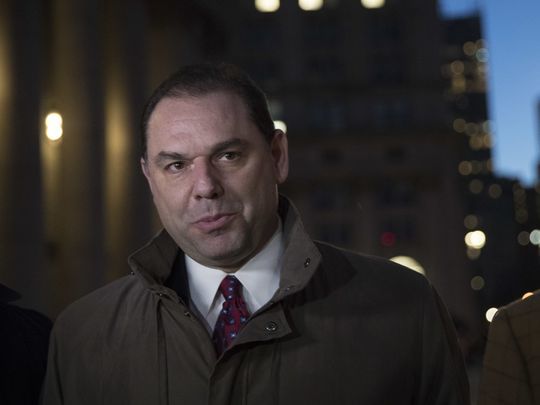
Joseph Percoco, one of Gov, Andrew Cuomo's former executive deputy secretary, leaves U.S. District court, Tuesday, Feb. 27, 2018, in New York. (AP Photo/Mary Altaffer) (Photo: Mary Altaffer, AP)
Who: One of Gov. Andrew Cuomo's closest personal friends for more than two decades; served as a top aide and campaign manager to Cuomo.
What he was convicted of: Percoco, a South Salem resident, accepted more than $320,000 from COR Development and CPV Energy, a pair of companies with business before the state that leaned on Percoco for favors. Much of the money was paid
by CPV through a lucrative job for Percoco's wife that required little work.
DATABASE: The
list of troubled state lawmakers in New York since 2000
He was convicted of one felony bribery count and two counts of conspiracy to commit honest services wire fraud.
When: A jury convicted
Percoco (along with COR executive Steven Aiello) in March. Jurors acquitted another COR executive, Joseph Gerardi, and couldn't reach a verdict on Peter Galbraith Kelly of CPV, who later agreed to a plea deal.
Sentencing: Percoco
is due for sentencing Aug 10. Prosecutors are seeking
a "significant" prison term of more than five years; Percoco's attorneys are looking for two years.
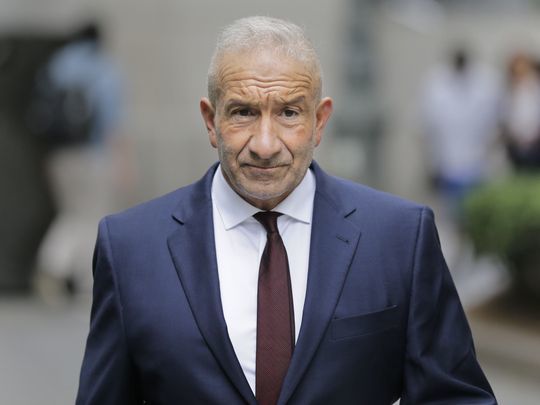
Alain Kaloyeros, a former president of the State University of New York's Polytechnic Institute, arrives to federal court in New York. He was found guilty in a bid-rigging trial on July 12, 2018. (Photo: Seth Wenig, AP)
Who: The founding president of SUNY Polytechnic Institute, Kaloyeros was trusted by Cuomo to oversee many of the governor's top economic-development initiatives, including the Buffalo
Billion program.
What he was convicted of: Kaloyeros
was found to have rigged the bid for contracts that led to state-funded jobs worth more than $850 million, including a $750 million job to build a Tesla/Panasonic solar-panel manufacturing facility that is the centerpiece of the Buffalo Billion.
The contracts went to LPCiminelli and COR Development, whose executives were also convicted.
When: Jurors convicted Kaloyeros, LPCiminelli's Louis Ciminelli and COR's Aiello and Gerardi on July 12.
They've vowed to appeal.
Sentencing: Kaloyeros' sentencing is set for Oct. 11.
Sheldon Silver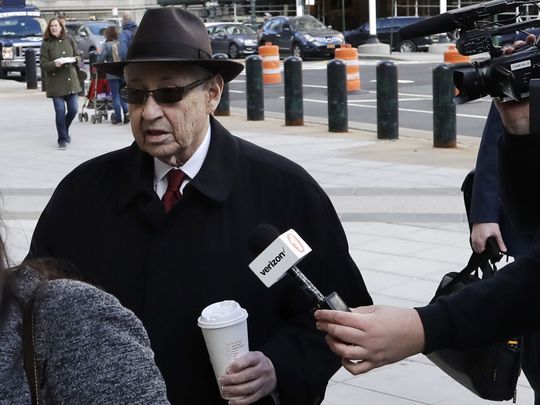
Former New York Assembly Speaker Sheldon Silver arrives at federal court, Monday, April 30, 2018, in New York. (Photo: Mark Lennihan, AP)
Who: Silver,
a Manhattan Democrat, was one of the most powerful people in New York government during his two-decade tenure as speaker of the state Assembly, which ended when he was indicted in 2015.
What he was convicted of: Silver,
an attorney, was convicted of accepting $4 million disguised
as legal payments from law firms specializing in real estate and asbestos claims.
In return, he steered research dollars to a Columbia University cancer researcher who was directing clients to him, which he referred to the asbestos
firm in exchange for fees. He directed Glenwood Management, a major real estate firm and campaign donor, to steer work to the real estate law firm that was paying him.
When: Jurors first convicted Silver in
November 2015, but his conviction was overturned in 2017 after the U.S. Supreme Court narrowed the corruption law he was convicted under. Prosecutors were allowed to retry the case, however, and secured a second conviction in May.
Sentencing: Silver
is due for sentencing July 27. He was previously sentenced to 12 years in prison with a $1.75 million fine and $5.2 million in forfeiture before his previous conviction was overturned.
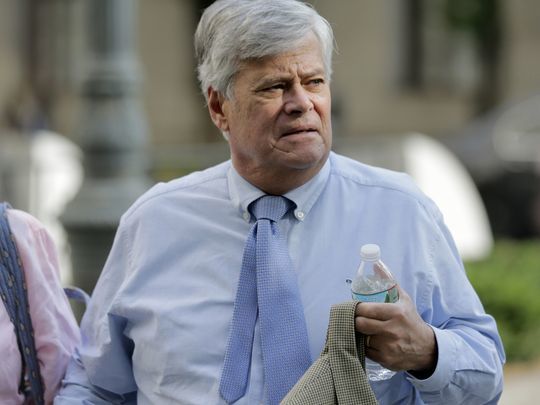
Dean Skelos arrives to federal court in New York, Thursday, July 12, 2018. (Photo: Seth Wenig, AP)
Who: A Nassau County Republican, Skelos
was the powerful state Senate majority leader in 2008 and from 2011 through 2015.
What he was convicted of: Skelos was found guilty of using his considerable influence and power to secure more than $300,000 for his adult son, Adam, through low-show jobs and a $20,000 payment from firms with business before the state.
Adam Skelos was also found guilty.
When: Dean and Adam Skelos were originally convicted by a jury in 2015 before their verdicts were overturned when the U.S. Supreme Court narrowed the corruption law
they were charged under. But, like Silver, they were convicted in a retrial this year — July 17, specifically.
Sentencing: Dean Skelos is due for sentencing Oct. 24. He was previously sentenced to 5 years in prison
before his first conviction was overturned.
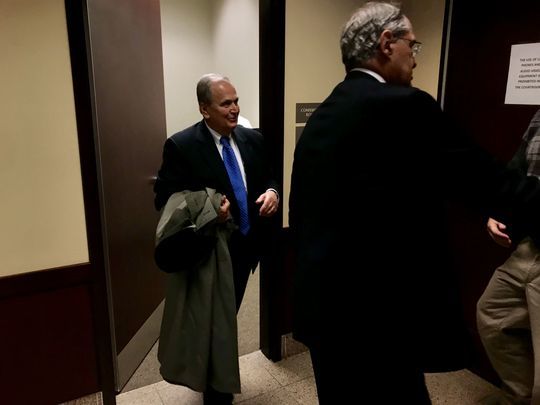
Former state Sen. George Maziarz (left) enters a courtroom in the Albany County Judicial Center with his attorney E. Stewart Jones on Friday, March 2, 2018. (Photo: Jon Campbell / Albany Bureau)
Who: A Niagara County power broker, Maziarz served 20 years in the state Senate before stepping aside in 2015. His district stretched into the Rochester area.
What he was convicted of: Maziarz pleaded guilty to a single misdemeanor count of offering
a false instrument for filing.
It was quite the plea bargain for Maziarz: He had been facing trial on five felonies before the state Attorney General's Office agreed to the deal.
He was accused of orchestrating a
scheme to hide payments from his campaign to a former staffer who had been accused of sexual harassment.
When: Maziarz agreed to the plea deal in March.
Sentencing: He paid a $1,000
fine.
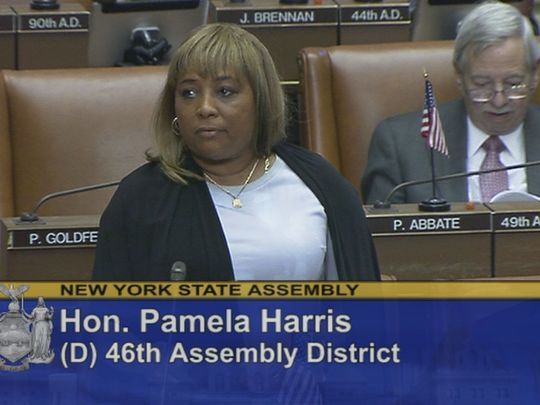
Assemblywoman Pamela Harris, D-Brooklyn, speaks during a debate in the state Assembly chamber at the Capitol in Albany. (Photo: NYS Assembly)
Who: Harris,
D-Brooklyn, was a state assemblywoman in 2016 and 2017.
What she was convicted of: She pleaded guilty to four felonies after prosecutors had charged Harris with fraudulently pocketing $25,000 from the Federal Emergency Management Agency and $23,000 in New York City funds that were meant for Coney Island Generation Gap, a non-profit she once
led.
When: She pleaded guilty in June.
Sentencing: Harris is due for sentencing Sept. 26.
Marc Panepinto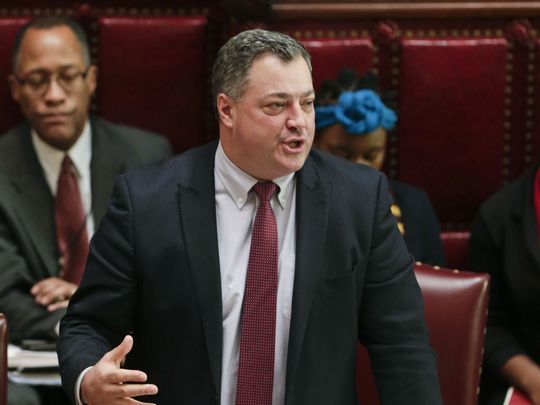
FILE--In this Jan. 21, 2016 file photo, Sen. Marc Panepinto,
D-Buffalo, speaks in the Senate Chamber at the Capitol in Albany, N.Y. (Photo: Mike Groll, AP)
Who: Panepinto served a single term in the state
Senate in 2015 and 2016.
What he was convicted of: The Buffalo Democrat pleaded guilty to a single misdemeanor count of promising benefits for political activity.
Panepinto tried to cover up unwanted sexual advances by offering his victim, a staff member of his, a job or money to stay quiet.
When: Panepinto entered his plea in late
June.
Sentencing: He's due for sentencing Oct. 2. He faces up to a year in prison and a fine.
November 15, 2018
Americans Think ���Corruption��� Is Everywhere. Is That Why We Vote for It?

Reported by New York Times
Charles Homans
At one of the last rallies of Donald Trump’s 2016 presidential campaign, I found myself speaking with a pair of middle-aged women who emigrated years ago from the Philippines. We got to talking
about Rodrigo Duterte, the belligerent strongman who was elected president there six months earlier, and I asked them if they thought Duterte and Trump would get along. “Oh, my gosh!” the first woman said. “Probably — they are the same!”
Duterte had won in a landslide on his promises to extrajudicially exterminate the nation’s drug dealers and users, a pledge understood by Filipinos as a proxy battle in the country’s long war against endemic corruption.
In 2006, Transparency International ranked the Philippines 121st out of the 163 countries on its Corruption
Perceptions Index (that’s the bad end); a similar ranking the following year by the Hong Kong-based Political and Economic Risk Consultancy rated it the most
corruptnation in Asia.
“I came from the Philippines, right?” the second woman said. “When corruption sets in, it doesn’t stop at the top. It goes down. Every appointee will be somebody that is
corrupt or can be corrupted, can be silenced. Look at now. If you have a corrupt judicial system — I think the only thing that’s standing now in America that isn’t so very corrupted is the military.”
“And
you think Trump can stop that?” I asked.
“I will take him,” she replied. “Because I know what Hillary did already.”
Of all the apocalyptic prophecies on offer at Trump rallies, this was in a way the most familiar. An obsession with corruption is an American tradition; it dates back to the founding fathers, who declared independence in part on the conviction
that the British monarchy was wielding its expanding financial and patronage power to subvert the independence of Parliament. In a 1994 essay, the historian John Murrin observed that after the revolution, “anxiety about corruption, instead of receding
in the republic designed to destroy it, acquired unprecedented force in American public life, sometimes almost enough to overwhelm all other concerns.”
You could argue that Americans have been well served by this anxiety.
By international standards, we live in a cleanly run country, and always have. For all but two of the 23 years that Transparency International has published its index, the United States has appeared in the Top 20 least-evidently-corrupt countries. It’s
true that we have had our share of spectacular episodes: the Whiskey Ring and Boss Tweed in the 19th century; Teapot Dome and Abscam in the 20th. In 2006, the Republican lobbyist Jack Abramoff was convicted of felony corruption, bringing 20 people, including
a congressman, down with him. In 2011, Rod Blagojevich, the Democratic former governor of Illinois, went to prison for trying to auction off Barack Obama’s old Senate seat. But the fact that these incidents remain so memorable is the point; they were
seen as unacceptable aberrations, with consequences in the courts of law and public opinion. People went to prison, lost elections and, in Abramoff’s case, were played by Kevin Spacey in a biopic.
And yet, in a Gallup
poll released three years ago, 75 percent of American respondents said that corruption
was “widespread” in the country’s government. Among the other countries in Transparency International’s Top 20 that were also surveyed by Gallup, none were remotely as pessimistic about corruption as the United States. No other country
has done so well at containing corruption while leaving so many of its people convinced that it has done poorly.
If this reflects the legacy of the founders’ anxieties, it also reflects Americans’ expansive definition
of “corruption.” The idea suffuses our politics and hangs heavily over any intersection of money and politics, however legal: The practice of earmarking appropriations bills is “inherently corrupt,” in the view of the former Republican senator Tom Coburn; the sweeping tax bill that Republicans hastily drafted and passed last year would have them “nailed with corruption,” Howard Dean vowed; post-Citizens United election spending is a “corrupt campaign-finance system,” in Bernie Sanders’s formulation.
Is it even worth distinguishing between this unseemly-but-legal stuff and true corruption if the outcome is, arguably, not much different? It’s an interesting question, but one you would only think
to ask in a country, like the United States, where illegal corruption is relatively rare. The true cost of illegal corruption, in countries where it is rampant, is rarely the direct one; it is the way even the most banal and minor forms of it erode the rule
of law, introducing uncertainty into every dealing with the state and reducing it to the self-interest of its human agents: not just politicians but also customs inspectors, permit issuers, police officers, anyone vested with enough power to extract a dollar.
Eventually the idea of reforming institutions starts to seem bewilderingly difficult — harder than just tearing them down. This is why anti-corruption crusades are expedient platforms for demagogues and authoritarians
who, like Duterte, have no serious interest in corruption — the Philippines had generally improved under his predecessor and has slid back down the rankings during his presidency — but are eager to tear down institutions for very different reasons.
Trump’s invocations of corruption, like Duterte’s, have rarely been far from his own open pining for unchecked authority. “You look at the corruption at the top
of the F.B.I. — it’s a disgrace,” he told the hosts of “Fox and Friends” in April. “And our Justice Department, which I try and stay away from — but at some point I won’t.”
What
is incredible about this is not just that so many Americans now accept the sort of drastic rhetoric that usually only flies in countries with actual, existential corruption problems. It’s the fact that so many people accept it from, of all people, Donald
Trump. “The Democrat I.T. scandal is key to much of the corruption we see today,” he tweeted on June 7. This was a week before New York’s attorney general filed
a lawsuit seeking to disband Trump’s philanthropic foundation following a two-year investigation, alleging extensive campaign-law violations and extravagant self-dealing. (Trump blamed the lawsuit on “sleazy New York Democrats,”
but the state’s evidence included a note in Trump’s own handwriting diverting foundation funds to his personal legal expenses.)
“Total corruption — the Witch Hunt has turned out to be
a scam!” Trump tweeted about the F.B.I. on June 20, two days after Forbes reported that his commerce secretary, Wilbur Ross, had lied to the Office of Government Ethics about his stakes in companies co-owned by the Chinese government and allies of the Russian president, Vladimir Putin. “So many questions, so much corruption!”
Trump fumed about the F.B.I. (again) on June 28, the day after the Environmental Protection Agency’s chief ethics officer reported that
he was assisting in investigations of his own boss, Scott Pruitt, the target of 13 federal inquiries into his spending and management as the agency’s administrator. (A week later, Pruitt resigned.)
And that’s
just in June. With each new revelation, reporters dutifully observe that it would be, for any other presidency, a defining scandal. This is a country where, as recently as 2009, failing to account for the use of a borrowed limo on an income-tax return, as Tom Daschle did, could force you to withdraw from a cabinet appointment. How did we get from there to Wilbur Ross, let alone Trump himself?
Forget political tribalism for a moment. There was a time, back before Trump locked up his party’s 2016 nomination, when a plurality of Republican primary voters decided to take at face value the anti-corruption bona fides
of a man whose most sustained previous relationship with politics was navigating the
favor exchanges of 1970s Brooklyn Democratic clubhouses; who had spent much of the last decade in business with an unambiguously corrupt Azerbaijani oligarch; who had derided the
Foreign Corrupt Practices Act, which forbids American companies to bribe officials in other countries, as a “ridiculous,” “horrible law”; whose companies, according to his own campaign disclosure form, carried at least $315 million in debt to an opaque web of financial institutions, many of them in foreign countries. It’s still a nagging question: This guy?
It’s possible, however, to see Trump not as an exception but as the logical conclusion of a national fear of corruption that long ago curdled into a self-satisfied conviction
that everything and everyone in politics already is corrupt. Trump campaigned on the idea, after all. He has always had a knack for channeling Americans’ fundamental cynicism about politics, no doubt because he shares it. In May, he mused that he was considering commuting Blagojevich’s 14-year sentence; the governor, he
argued, had really only been convicted of “being stupid and saying things that every other politician, you know, that many other politicians say.” Most Americans would probably agree. If you believe all politicians are crooks, it no longer seems
to matter much whether a particular one among them is: The answer to “This guy?” becomes “Why not this guy?” And in the end, you get the country
you thought you had all along.
Charles Homans is the politics editor for the magazine. He last wrote about the rallies
Trump has held since becoming president.
September 14, 2018
D.C.'s Delinquents: Half the District's Leaders Have Been Federally Investigated

By Amy Bingham
From drug possession to tax fraud, city officials in Washington, D.C. are notorious for being less than law abiding.
In the past four years half of D.C.'s top government officials, including D.C. councilmembers and the mayor, have been under investigation by either federal authorities or the D.C. board of elections. Two have resigned and two have served prison time.
Another name was added to the ever-growing list of indicted district leaders this week when D.C.'s council chairman resigned and pled guilty charges of bank fraud.
While Mayor Vincent Gray insists he
does not "think there's widespread corruption here," here's a look at some of the politicians who are running the nation's capital city and racking up federal charges in the process.
 Nikki Kahn/The Washington Post/Getty Images Kwame Brown
Nikki Kahn/The Washington Post/Getty Images Kwame BrownJob Description: D.C. Council Chairman
Charges: a felony for bank fraud and a misdemeanor for "unlawful cash campaign expenditure"
What happened: Brown
pled guilty on Friday to overstating his income by tens of thousands of dollars on a bank loan application to qualify for a home equity loan to buy a boat, according to charges filed
Wednesday with D.C.'s district court.
Kwame was also charged with a misdemeanor on Thursday for allegedly failing to report $170,000 in campaign
contributions that were held in a "side account" during his 2008 campaign.
Consequence: resigned his council seat on Wednesday
Past Controversies: Brown's tenure as the second-highest ranking District official,
behind the mayor, got a rocky start when the chairman ordered district officials to get him a "fully loaded" all-black Lincoln Navigator SUV to drive to during his tenure.
When the SUV arrived with a gray interior, Brown demanded another vehicle with
a black interior. D.C. taxpayers footed the $1,600 bill to rush a new Navigator to the District in time for Kwame's inauguration and are still paying nearly $2,000 per month to lease the SUV, the Washington City Paper reports.
The District of Colombia is facing a $600 million budget shortfall for 2012.
The Associated Press contributed to this report.
 Mike Coppola/Getty Images
Mike Coppola/Getty Images Vincent Gray
Job Description: Mayor
What happened: Gray's 2010 mayoral campaign has been charged with paying his fellow mayoral
candidate Sulaimon Brown to stay in the race ito continue attacking his opponent, then-incumbent mayor Adrian Fenty, and thereby help Gray's election prospects. Brown says Gray promised him a job with the District if Gray won the election and paid him thousands
of dollars in false money orders.
Consequence: Gray has not been charged with any wrongdoing, but his campaign treasurer Thomas Gore pled guilty in May to obstruction of justice, a felony, for destroying evidence and three misdemeanor
charges for making campaign donations under someone else's name. Gore faces 12 to 18 months in prison and a possible fine of $3,000 to $30,000.
The mayor's campaign consultant
Howard Brooks pled guilty to making false statements to federal prosecutors. He faces a maximum of six months in prison and a $5,000 fine.
 Linda Davidson/The Washington Post/Getty Images
Linda Davidson/The Washington Post/Getty Images Marion Barry
Job Description: Mayor for
Life, Councilmember for Ward 8
Charges: misdemeanors for cocaine possession, stalking and tax fraud
What happened: Marion
Barry, who served as D.C. mayor for more than 20 years, pled guilty to cocaine possession after he was caught on video smoking crack cocaine in a Washington hotel room. Barry
served six months in federal prison and was re-elected to another term as mayor after his release.
D.C.'s "Mayor for Life" has also been found guilty of a misdemeanor tax charge for failing to pay the majority of his income taxes during the
five years after he left office in 1999. Authorities dropped misdemeanor charges for allegedly stalking his ex-girlfriend and having traces of marijuana and cocaine in his car.
Consequence: Served 6 months in prison for the cocaine
charge
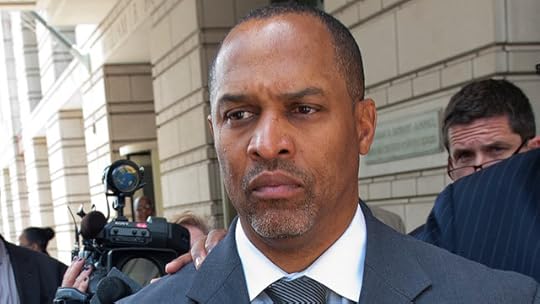 The Washington Post/Getty Images
The Washington Post/Getty Images Harry Thomas
Job Description:Councilmember for Ward 5
Charges: federal theft and
filing false tax returns, both felonies
What happened: In January, Thomas pled guilty to stealing more than $350,000 in taxpayer money assigned to youth baseball and arts programs and diverting it instead to buy a $58,000 Audi Quattro
Premium SUV, a $23,245 Victory motorcycle, expensive clothing, restaurant meals and luxury vacations, according to theU.S. attorney's office. Thomas was the first sitting D.C. city councilmember
to be charged with a felony
Consequences: Thomas resigned his city council seat in January and was sentenced to 38 months in prison.
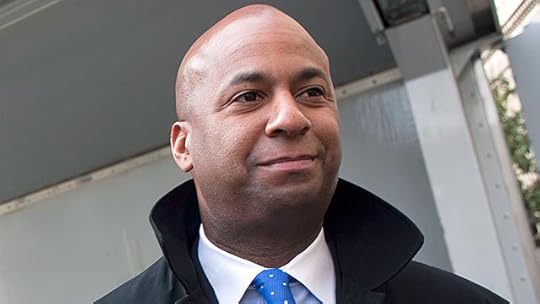 Michael Temchine/For The Washington Post/Getty Images
Michael Temchine/For The Washington Post/Getty Images Michael Brown
Job Description: At-large councilmember
What happened: Michael Brown seems to have a problem paying
his taxes. Last year the councilmember owed more than $14,000 in unpaid property taxes and nearly as much in unpaid income taxes. The IRS filed a lien on his house in 2010 seeking more than $50,000 in income taxes that Brown failed to pay from 2004 through
2008, the Washington Times reports.
Brown is a leading advocate on the council for raising taxes on D.C. residents who earn more than $200,000.
Consequences: Brown is on a repayment plan for his back taxes.
 Kevin Wolf/AP Photo Jim Graham
Kevin Wolf/AP Photo Jim Graham Job Description: Councilmember for Ward 1
Charges: Chief of Staff was charged with two felonies for bribery
What happened: While Graham has not been charged
with any wrongdoing, his chief of staff Ted Loza was sentenced eight months in prison for accepting a $1,500 bribe from a taxi cab industry representative while the council was debating taxi reform in 2008.
Consequences: Loza pled
guilty to two counts of accepting illegal bribes and one count of making false statements.
January 24, 2018
10 Most Corrupt Politicians In The World
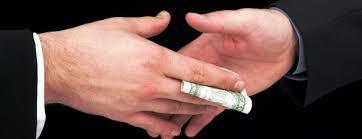
In situations where money talks, everybody of a desirable interest would spare their ears to listen very carefully and where power and political influence seems to rule in a country, then this ultimately and inevitably
becomes corruption’s playgroundtoo. We live in a time that is inhabited by some of the most corrupt politicians of the world. It honestly does not
take much other than having persuasive talent, verbal ambition, valuable contacts in the right places at time and a heap of money to squander around loosely in order to master
the art of bribing somebody in high places and to place them in a position where something dear to them would be threatened if they do not comply to whatever proposal you were brave enough to bring to their tables at short, random and unexpected notice.
This is primarily more than enough to turn a good yet average and common politician into a corrupt individual that is ever ready to bask in the life of ‘white-collar’ crime.
In this fast paced world, there are many corrupt individuals who
are notoriously famous for their illegal and unlawful deeds at the cost of state taxes and other funds that don’t belong to them. Situations of this nature
has spread throughout the world and isn’t uncommon in most cases. Below are 10 of the most corrupt politicians of the world. You may already have prior knowledge of some of them, however it’s time to bring to light about these politicians darkness
that they have been shadowing in for the duration of their seats in their cheated positions until being exposed and de-badged of their statuses.
Former President of the Philippines
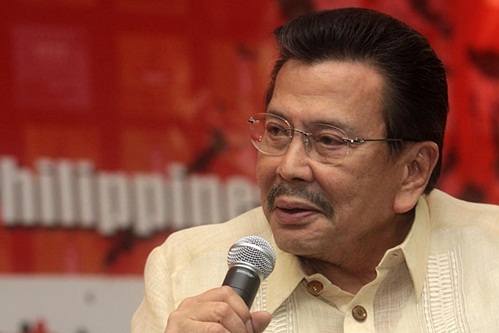
At the very beginning, before he has been officially elected as president, he used the art of manipulation to create a “land of make believe” by using the poverty circumstances of the majority of the Philippines against them in order to aid in
his campaign and manifesto which obviously helped in his election process as he somehow predicted that , it’s the only way to gain the respect and voting favor of the lower class first so that the higher society members could recognize him as being a
true president that is there to genuinely improve the well-being of the people starting from the lowest to the highest in society. To his shame, there was obviously an ulterior motive behind his charade that he managed to put on as his won the votes and has
been elected as president of the Philippines in those years.
Joseph now counted among the most corrupt politicians of the world, had started off as an Actor in his early life and no wonder he was able to pull this off successfully in deceiving the people
who genuinely believed and saw a ray of hope in him. Joseph Estrada has been corrupt since before he even became president, and sadly the Philippines were too vulnerable to see it. Joseph Estrada has been accused and brought to books and is believed to have
taken more than $80 Million in bribes and corrupt dealings.
Former President of Nicaragua
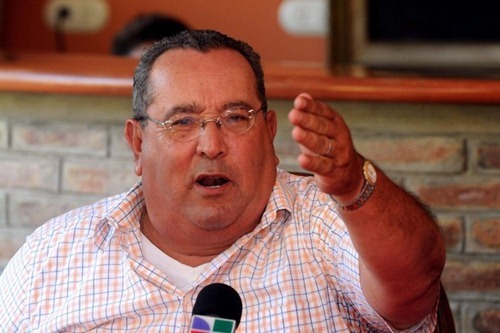
Being the 81st President of any country should be a huge honor to every Man, regardless of how many Presidents were before you, the ‘President’ title simply means, head of the Nation, Leader of an entire country, World recognition, being
an official part of a country’s history etc. However some people seem to not realize the novelty, importance, honor and integrity of their Presidential titles and tend to abuse the privileges handed to them by the state. Presidents are under oath too,
however for some people like Arnoldo, all this doesn’t mean as much as having all of the world’s rich’s that exceeds his pay which was bound to spark and arouse suspicions.
Aleman has pursued the career of being a Lawyer before presidency
and that alone should tell you that his Oath and promise to the law, the country, should have been stronger than ever. We may give credit to his personal success as a lawyer, then running for Mayor of Nicaragua and then President and then one of the most corrupt
politicians ever! Quite an outstanding and successful career development in politics and business too and the perfect way to be sentenced to 20 years of imprisonment for corruption by the embezzlement of more than $100 Million from Nicaragua’s Treasury.
Former Prime minister of Ukraine
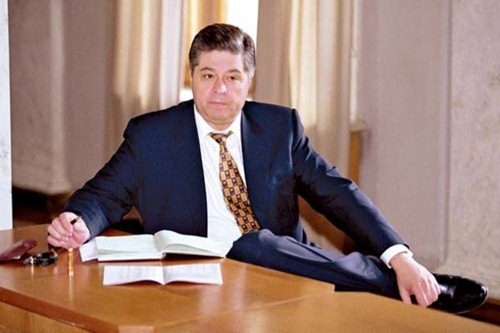
The common pattern amongst each of these corrupt organisations or individuals is that each one sets a trend that goes higher than the last corrupted
individual. It’s strangely almost like a competition of who can steal the most amount of money or be the nations most corrupted politicians. It is rather amazing and stupid as well, what some individuals would to do gain a place in the history of the
world but for the wrong reasons.
on the other hand seems to have done extremely well in his illegal and unlawful acts during the duration of his time as just a mere PM (Prime Minister), not even the President in this case. Still regardless of being the Prime Minister, it was in Pavlo’s
plan to use the President as a shield or to divert all attention from him, so that he could continue to go on his quest for fraudulent activities that are to the estimated corruption value of $200 Million which seems to have mysteriously disappeared and later
revealed that part of it has been used to sign a$10 billion dollar deal abusing Office rights and terms .Most definitely creates a big Title on the forehead of Pavlo to have been one of the most corrupt politicians of the world to have been able to sneak a
value of $200 Million under the carpet or out of the visibility of authorities concerned. 7. Alberto Fujimori
Former President of Peru
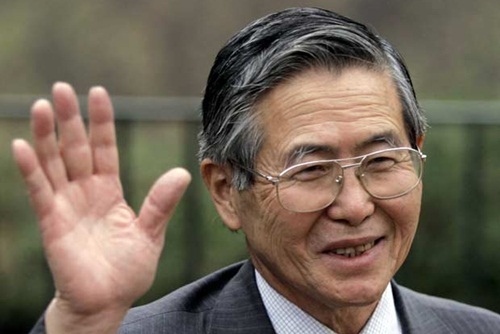
A funny name this man has, but a clever mindset, cleverer than all his other corrupt pals thus far as the amount estimated in his corruption ranking value
is rather staggering. Corrupt Presidents among the most corrupt politicians, isn’t an uncommon thing in this case ,it’s just that some of them are a little bit more intelligent in their corruption parades that they were able to milk more out of
the state, than the rest before they’ve been brought to legal justice. Alberto Fujimori is of an Asian descent which primarily means disciplined, sharp witted, and intelligent as well as mentally sharp since they have that Asian blood which is known
to the world for their attention to detail type of style in everything they say and do which ensures order and precision in most cases.
In the Case of Alberto Fujimori however and his corruption In Presidency has gotten over his ‘head’ of
the Nation accolade. It doesn’t mean that if a man is dressed with sharp suits, speaks in polite speech mannerisms and carries himself out with professionalism in the public eye, that he won’t be capable of corruption to some hectic degrees, kidnapping
and murder As well as guilty by court of law in his act of ordering death squad Military men to do the dirty work of kidnappings and killings during his presidency and with an estimated fraud value of $600 Million stolen from the state.
Former President of Haiti
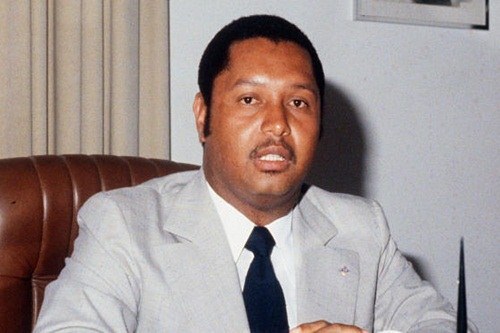
We all know that action star, Jean – Claude Van Damme has been the bad boy dominating the Action Genre of Hollywood since the 80’s
and there was only one of him. Jean – Claude Duvalier on the other hand, obviously tried to imitate this actor in reality due to his first name being the same, and very humorously couldn’t come close it seems. Some people in power have seem to
be waving the flag of a common trend that having “President” title simply means “I own everything and everybody In a country” and this is where abuse of power gets to best of their morality and beliefs and basically everything else
changes once somebody comes into full power and control, it wouldn’t be very long until their power is taken to head where everything is now swindled by their intimidating and authority figure finger. Duvalier is one of the most corrupt politicians ever.
Everything seems to point in
the direction of corruption from here onwards.” Like father, like son” they say and seems as though Papa Duvalier, the father of Jean – Claude Duvalier has been terrorizing Haiti for more than a decade to which the name struck fear In the locals. A man that claimed to bring about an economical revolution to Haiti’s starving population, felt nothing to embezzle between
$300 – 800 Million during his time in office. Surely one of the most corrupt politicians of the world. 5. Sani
Abacha
Former President of Nigeria
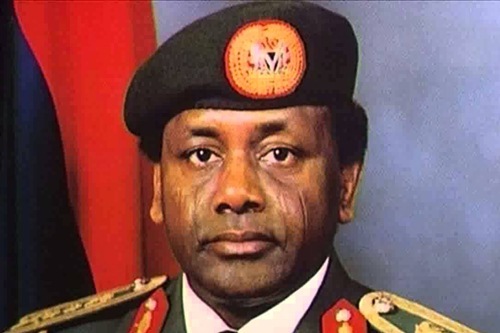
Nigeria
as it stands to the world is automatically classed as a war torn country and quite frankly, who could blame the world for thinking so lowly of them when civil war seems to be so popular, the locals are somewhat getting better at it. War torn countries,
require a leader that can turn an entire nation around, command in operations of war and actually win at it to protect the name and people of a country. Not every leader appointed and elected into Presidency or parliament or a high profiled position in a country
sees for the actual needs of the people and meets demands of what needs to be changed urgently for the better of those protesting legally for it.
There will always be a need of self-improvement ,
personal greed while the rest will suffer dearly and that ultimately becomes the major downfall of every country thereafter where as bad as things are as it is, will become worse after a man so called ‘leader’ like Sani Achaba who is often regarded
as one of the most corrupt politicians, could steal around $4 Billion into personal private accounts as well as Jewelry to the value that could supply a 100 years salary to the average Nigerian. Which was ‘attempted’ to be stolen from his residence
by robbers that police have discovered and ironically though after the immediate shock of his death, his wife tried to flee with 4 suitcases of stolen money also. This is where hilariously, the robber gets robbed and that too, by his own wife. Its more of
a comical act of fraudulence rather than a clever one. Mr. Achaba earns himself the title of one of the funniest corrupt politicians that the world has seen.
Former President of Yugoslavia
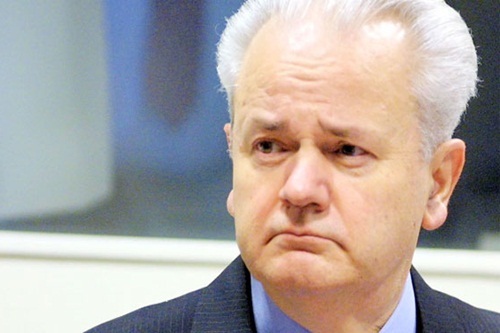
In terms of fraud, one could ask oneself, what is the limit that somebody could reach in terms of the amount of money they could take from the country without being caught and for how long can they pull this off? There must be a certain genius
behind this as it isn’t as easy as mugging a homeless man on the street of his last Penny to steal from something as large as an entire Country. Mr. Milosevic however has gone beyond just money fraud in this case and has been convicted according to BBC’s
report of some high profiled killings and being the head behind assassination attacks, killing of witnesses or people who were brave enough to bring him to justice.
Plus he’s also one of the most corrupt politicians on our planet.
Power driven men, know no extremes in terms of where they Power boundaries are when in office or in Presidency as they sincerely believe that they control and own everything that
the country has, including the people, where human rights and constitutions are just pieces of paper with fancy writing on it since none of these seem to genuinely matter when they are committing fraudulent acts themselves and in this case, not in small petty
numbers as this one really reached the extreme fraud bars. $100 Billion shelled out to compensate for campaign bombings that took place and causing collateral damage to this estimated worth and figure is no joke and certainly not a child’s game. Presidents
are supposed to bring about peace in their countries and not inflict war with others. All this by the handy work of one man and his accomplices, Slobodan Milosevic who even notoriously earned himself a Street named after him.
Former President of Zaire
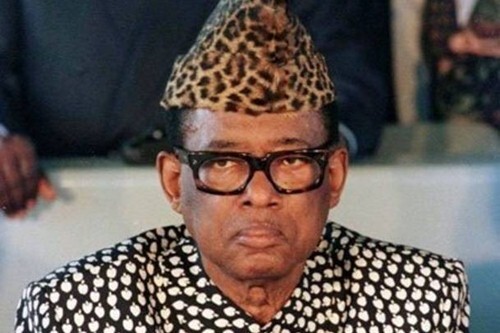
From this point on, the story of fraudulent acts become interlinked with each below this rank, as it seems that the next 2 rankings below Mobutu Sese Seko has been interlinked and confirmed as accomplishes that were involved in what is estimated
to be a $50 Billion 3 Man scorn from all 3 of the Countries that these men represent such as: Zaire, Philippines and Indonesia. This is actually the sum equal to the yearly budget of the West. How the 3 men managed to pull this off is somewhat of
a mystery, let the other two remain a mystery for now. Mobutu Sese Seko is ranked among the most corrupt politicians in the world and part of the 3 man tag team cross country in their reign of ‘joint -venture’ power-man fraudcommitments and
dedication, has personally been reported to embezzle an estimated amount of around 12 Billion by himself. These figures certainly don’t lie and isn’t exaggerated either.
Former President of
the Philippines
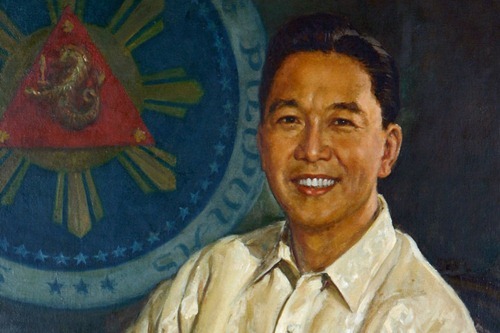
As part of the three Musketeers and why we call them ‘Marketeers’ is due to their ability to put on a reputable and accountable appearance
to their public of being respectable Leaders of the country until that mask comes out and the Robbers are revealed, its not inappropriate to call them “masked robbers” either. And with this Mask they sure did create a Phantom of their very own
Opera (dramatic play). Yes! You’ve guessed it. Ferdinand Marcos (Former President of the Philippines) is Mystery man 2 in the 3 man joint venture of billions to be estimated amongst each other with regards to their fraudulent acts. It seems
as though the Philippines, sure knows how to elect their Presidents, only to shoot themselves in the foot, not once but on two very unwise choices of Presidents.
Making the same mistake twice is considered as insanity, but then again, who are they to
know whose going to rob the entire nation until it happens. Ferdinand Marcos has been reported to have stolen $5 – 10 Billion of his own as well during the years 1972 – 1986 In his time of Presidency. He came second in our list of most corrupt
politicians in the planet.
Former President of Indonesia
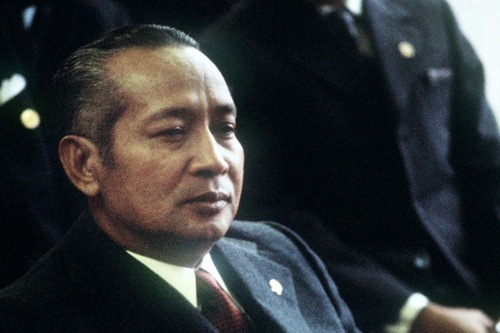
Mystery Man that Ranks number 1 on the list of the most corrupt politicians in the world is Mohamed Suharto seeing as because his managed to top the cake
with a shiny looking cherry of being able to take more than his joint venture pals (Mobutu & Ferdinand), ‘M & F’. The value that he is worth in the estimated value of notorious Presidential Fraud, it actually deserves a Campaign or Game
show of its own where the winner of who can embezzle the most out of a country wins and Mohamed Suharto seemed to have won it big during his 30 Year Presidential duration of Office in the Country’s highest seat.
During this time of Presidency,
it would have obviously given Mr. Suharto more than enough time to take a few billions for himself and to absolutely no surprise did he surpass the fraudulent amount of the rest reaching a staggering figure of $15 – $35 Billion in stone cold hard assets
and Swiss accounts that were ‘perfectly legal’ in terms of its existence, but yet again, where money talks, the corrupt ears will listen very closely and so it has been pulled off. What makes Mohamed Suharto Thee most corrupt politician of the
world isn’t just because of his fraudulent rank rate being the highest in personal embezzlement but due to managing to put up a decent, honest and upstanding Leader of the nation for 30 years. A man that long in Presidency can be accused even without
evidence for fabricating votes every now and then or banking hard on Campaigns to make the greatest impression every year to the vulnerable people who were just forced to believe it.
Suharto (Former President of Indonesia) Ferdinand Marcos (Former President of the Philippines) Mobutu Sese Seko (Former President of Zaire) Slobodan Milosevic (Former
President of Yugoslavia) Sani Abacha (Former President of Nigeria) Jean-Claude Duvalier (Former President of Haiti) Alberto Fujimori (Former President of Peru)
Pavlo Lazarenko (Former Prime minister of Ukraine) Arnoldo Aleman (Former President of Nicaragua) Joseph Estrada (Former President of the Philippines)

